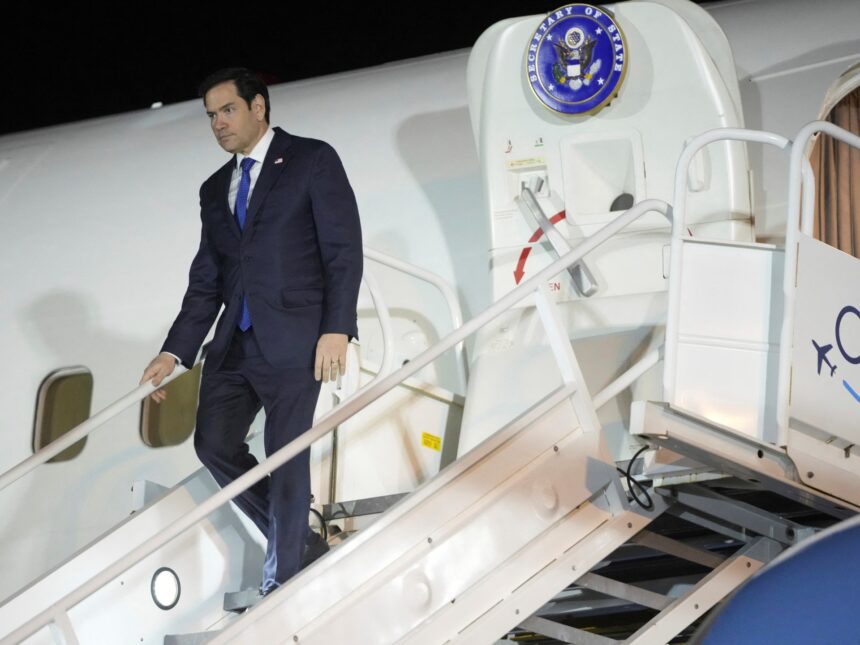United States Secretary of State Marco Rubio has embarked on his inaugural foreign trip with a visit to Panama, a longstanding US ally unsettled by President Donald Trump’s extraordinary threat to take control of the Panama Canal.
Starting his tour of the region, Rubio is set to explore Panama’s vital waterway and hold discussions with President Jose Raul Mulino on Sunday.
“It is not by chance that my initial overseas trip as secretary of state will keep me within the hemisphere,” he stated in a Wall Street Journal piece on Friday.
The canal serves as a crucial link between the Atlantic and Pacific oceans and shores, facilitating 40 percent of US container traffic.
Trump has declined to rule out the possibility of using military force to acquire the Panama Canal, which was handed back to Panama at the end of 1999. He cited China’s substantial influence through its investments in the surrounding ports as a reason for his stance.
In his inauguration speech last month, Trump declared that the US would “reclaim” the canal and remained unyielding in his stance on Friday. “They have already made several offers,” Trump mentioned regarding Panama, “but we believe it is appropriate for us to regain control.”
He accused Panama of removing Chinese-language signs to disguise how “they have completely violated the agreement” on the canal. “Marco Rubio is heading over to speak to the person in charge,” Trump informed journalists.
Rubio’s mission also follows Trump’s imposition of tariffs on Canada, Mexico, and China, as well as the suspension of virtually all US foreign aid – actions indicating a more assertive foreign policy.
‘Canal belongs to Panama’
Panamanian President Mulino has categorically rejected any negotiations with the US concerning ownership of the canal. He expressed hope that Rubio’s visit would concentrate on common interests such as migration and combating drug trafficking.
“I cannot negotiate, it is not feasible,” Mulino stated on Thursday. “The canal belongs to Panama.”
Nevertheless, Rubio asserted that he would convey Trump’s intentions. In an interview on Thursday with SiriusXM host Megyn Kelly, he highlighted Trump’s interest driven by legitimate national security issues arising from mounting concerns about Chinese activity and influence in Latin America.
“We will discuss this matter,” Rubio remarked. “The president has been quite clear about his desire to oversee the canal once more. Clearly, the Panamanians are not in favor of this idea. This message has been communicated clearly.”
Despite Mulino’s rejection of negotiations, some believe Panama might be open to a compromise involving the transfer of canal operations to an American or European company, eliminating the involvement of the Hong Kong-based Hutchison Ports.
The acceptability of transferring the concession to meet Trump’s demands, which appear to encompass more than just operations, remains uncertain.
“In some respects, Trump is making progress effortlessly,” remarked Ryan Berg, director of the Americas program at the Center for Strategic and International Studies, a think tank based in Washington, DC. “However, it will hinge on how his non-negotiable terms are articulated.”
“There has been a lot of fiery rhetoric, and it will be Rubio’s responsibility to clarify it,” he added.










